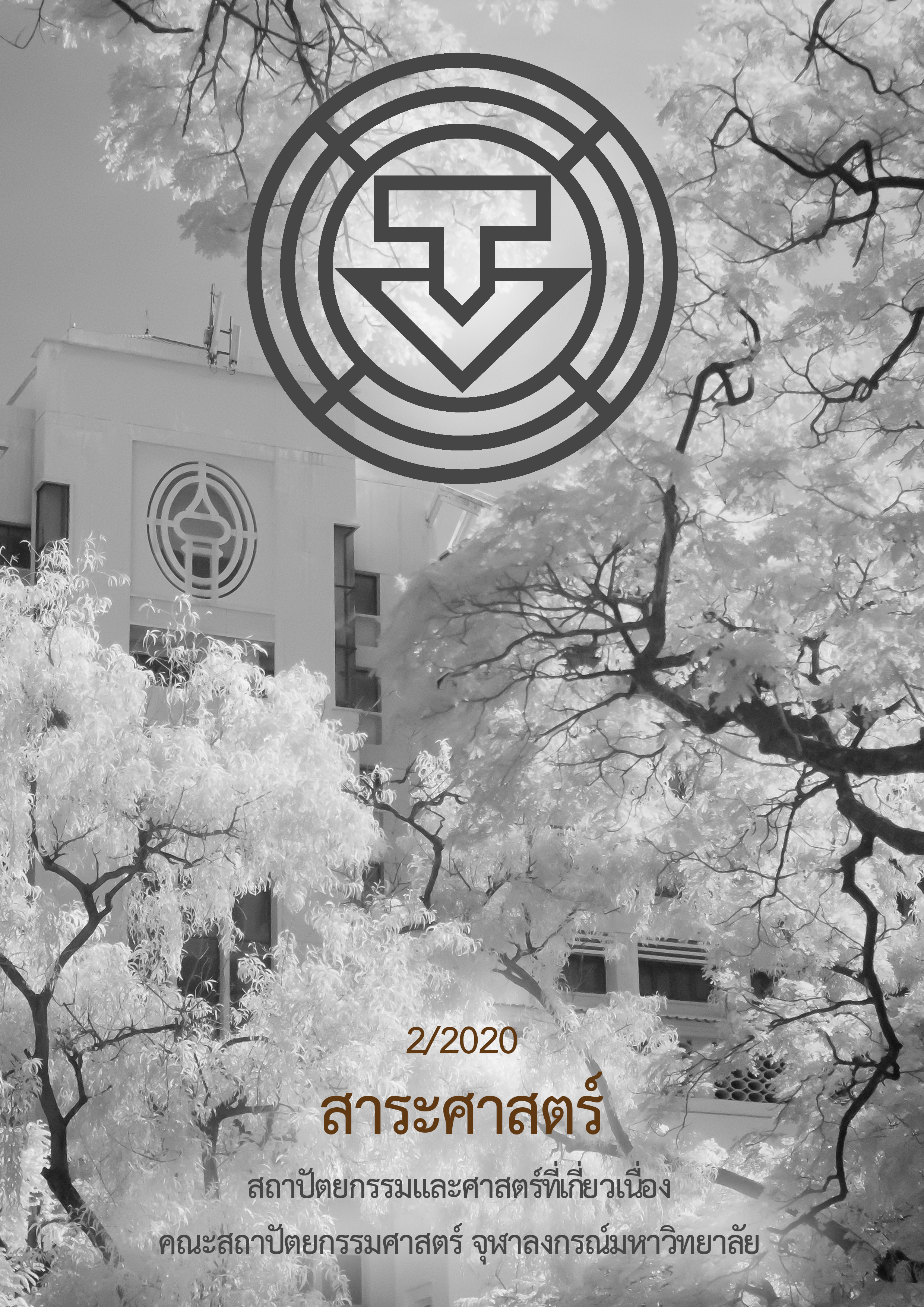TEXTILE WORKERS’ HOUSING WELFARE PROVISION BY FACTORY OWNERS
Main Article Content
Abstract
Textile industry is one of the industries that need a large number of workers to run a business. Thus, many factory’s owners have provided the housing welfare for their workers in order to facilitate and help them for doing their jobs. The housing welfare is also one of the tools that the owners use for attracting workers to work for the factory. The objective of this research is to study the view of the factory’s owners on the housing welfare, housing development and management guidelines, this also included the living condition, satisfactory and attitude of the factory’s workers towards the housing welfare provision. This study has collected the information by interviewing three different size textile factory’s owners in the west area of Bangkok city and three groups of the workers, who lived in the provided accommodation in each factory, total of 41 workers.
The finding showed that 1) Three factory’s owners view on housing welfare are different, the large size factory’s owner gave the definition of the housing as a welfare that need to be provided for the workers that proper for work conditions, meanwhile the medium size factory’s owner found the important of the housing welfare due to the characteristic of the non-Thai workers. The small size factory’s owner used the housing welfare as the competitive tool for attracting workers to work for the company. 2) All factory’s owners did not agree on government intervention on the housing welfare because of the different need of workers and the different cost that each factory has borne. 3) For the housing’s physical features and management guideline, the physical feature has been divided into 2 types (1) housing building that is located separately from the factory building, (2) housing area and factory area are located in the same building. The large size factory’s owner has arranged type 1 housing, rooms were enough for workers with clear and systematic management guideline for all stakeholders. The medium size factory’s owner also provided type 1 housing which was enough for all workers with good management even though had no clear rules as the large factory. For the small size factory’s owner, provided type 2 accommodation and the rooms were not enough for all workers due to the small area, also had no management guidelines. 4) Small size factory’s workers had the least satisfactory on their living compare to the other two factories. However, most workers did not ask for the better housing because they realized that it was the expense of the factory’s owner.
This research showed the factory owners’ views, the housing’s physical feature and their management guidelines on the housing welfare for their workers, also found the advantages and disadvantages of the housing welfare. The results can benefit not only the factory’s owners in case they would like to arrange the proper housing welfare for their workers, but also workers who can have better quality of life, moreover, leaving the government some idea to support or cooperate with the factory’s owner in order to reduce the labor’s housing shortage situation.
Article Details
References
กรมสวัสดิการและคุ้มครองแรงงาน. “สวัสดิการแรงงาน.” สืบค้น 18 สิงหาคม 2562. https://www.labour.go.th/index.php/hm7/73-2562-01-04-06-01-50.
ประภาศรี จิตพัฒนไพบูลย์. "การจัดหาที่อยู่อาศัยของลูกจ้างแรงงานย่านอุตสาหกรรม: กรณีศึกษา อำเภอพระประแดงจ.สมุทรปราการ." วิทยานิพนธ์ปริญญามหาบัณฑิต คณะสถาปัตยกรรมศาสตร์ จุฬาลงกรณ์มหาวิทยาลัย, 2537.
สุรางค์รัตน์ วศินารมณ์. สังคมสงเคราะห์ในอุตสาหกรรม. กรุงเทพฯ: สำนักพิมพ์มหาวิทยาลัยธรรมศาสตร์, 2528.
สุวิทย์ ยิ่งวรพันธ์. “ความหมายของสวัสดิการ.” ในสรุปผลสัมมนา เรื่อง สวัสดิการแรงงาน, คณะสังคมสงเคราะห์ศาสตร์ มหาวิทยาลัยธรรมศาสตร์, 20 เมษายน 2520.
เสาวลักษณ์ รอดสมัย. "แนวทางการจัดสวัสดิการที่อยู่อาศัยสำหรับพนักงานศูนย์ไปรษณีย์หลักสี่ที่ปฏิบัติงานเป็นกะ." วิทยานิพนธ์ปริญญามหาบัณฑิต คณะสถาปัตยกรรมศาสตร์ จุฬาลงกรณ์มหาวิทยาลัย, 2549.
Berry, Brian J.L. "Cities as Systems within Systems of Cities." Regional Science 13, 1(1964): 147-63.
Berry, Brian J.L. and Horton, Frank E. Geographic Perspectives on Urban Systems. Englewood Cliffs, NJ.: Prentice Hall, 1970.
Moriarty, Barry M. "Urban Systems, Industrial Restructuring, and the Spatial—Temporal Diffusion of Manufacturing Employment." Environment and Planning A 23, 11(1991): 1571-1588.


